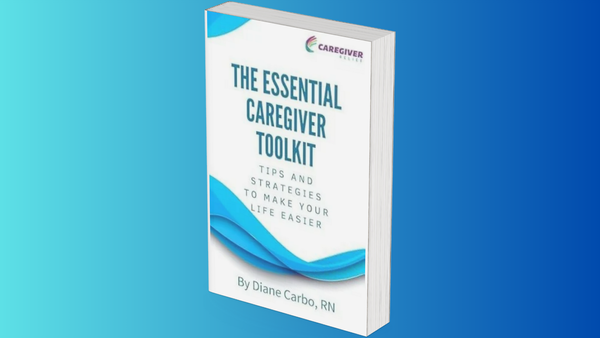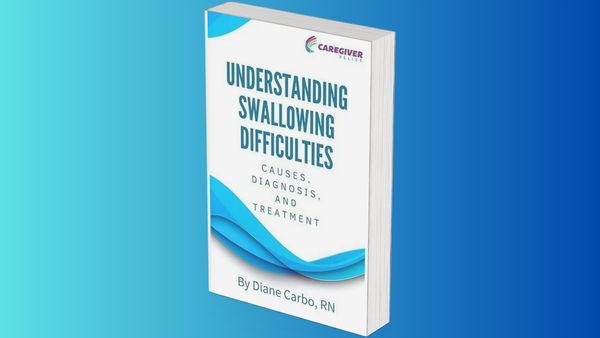Navigating the Emotional Journey: Understanding and Supporting a Loved One’s Transition to Memory Care
Explore the complex emotions faced by caregivers during a loved one's move to memory care. This guide offers insights, research findings, and practical strategies to support families through this challenging transition, emphasizing the need for understanding and compassion.

“My caregiver mantra is to remember: The only control you have is over the changes you choose to make.”
-Nancy L. Kriseman
Tony of Toronto, Canada share his caregiver guilt over the decision for long term care placement.
Tony shares:
My mom has been diagnosed with Alzheimer's about 3 years ago.
She was living in a basement apartment of our bungalow for 9 years.
Over the years, we have hired increasing levels of care giving. Starting with having someone with her 3 days a week, 8 hours a day. Later we advanced to securing care for her 24 hours a day, 7 days a week in the home. We had this help in the last 5 months before she was accepted by a long term care facility.
After a few falls... when I realized that she needed 24/7 care,I struggled with the idea of putting her in a long term care facility.
Dreading the thought, I began to realize that providing 24/7 care in her apartment ... was not going to be sustainable.
My mom was admitted to the nursing home Jan 28, 2011 for long term care placement.
At first, she seemed to be adjusting well.
Between, myself, wife and brother, she is visited at least once a day.
Being at the nursing home, she seem to have way more lucid moments than she did at her apartment.
Perhaps this was due to the interaction with people or a change in her diabetes medication.
She is now on insulin. Before, her doctor had her on four different meds for diabetes.
My mom generally appears healthier, though she complains about feeling as if the wheel chair is rocking.
A CTR appointment is in progress. Lately, she has been saying she hates it at the home. She feels that she is not treated well. She feels as if she has to wait long to be tended to (she was used to one on one help at home 24/7). She is very unhappy with long term care placement.
The last couple weeks she has broken down in tears begging to please take her home.
I have been a basket case recently, crying at the nursing home, in public, and at work. My wife is getting upset because she cannot handle seeing me like this. I only talk about how sad I am for my mom, repeatedly saying to my wife, that this is exactly why I did not want long term care placement for mom... I feel miserable, angry and very sad. Help please!
Thanks!
Tony
Dear Tony,
First let me tell you that you are not alone. As a family caregiver, we feel a tremendous amount of responsibility for the happiness of the person we are providing care.
The emotional journey of transitioning a loved one into a memory care facility is often fraught with complex emotions, particularly for family members who have been the primary caregivers. Tony, from Toronto, Canada, shares his deeply personal and challenging experience of moving his mother, diagnosed with Alzheimer's, into long-term care. His narrative underscores the multifaceted nature of this decision – the guilt, the worry, and the unexpected reliefs and disappointments that come with such a transition.

Understanding the Emotional Landscape of Memory Care Transition
The transition to a memory care community, such as an assisted living or dementia care facility, is a significant shift for both the individual with memory loss and their families. This change often brings a mix of relief and guilt, especially for family members who have been deeply involved in daily care. Tony's experience resonates with many families who struggle with the decision to move a loved one to a specialized care setting.
The Caregiver's Burden Post-Placement in Memory Care Facilities
The transition of a family member to a memory care community, such as an assisted living facility, marks a significant change not only in the life of the person with dementia but also for their caregivers. The research by Schulz et al. (2004) highlights a critical aspect of this transition - the sustained emotional burden on caregivers even after their loved ones are placed in a long-term care environment. This phenomenon is particularly notable because it persists despite the relief of the daily responsibilities of caregiving and the recognition that the loved one is receiving professional care.
Persistent Anxiety and Depression Among Caregivers
Even after the move to a memory care facility, family members often continue to experience high levels of anxiety and depression. This emotional distress stems from a variety of sources. Caregivers may feel guilty for not being able to continue caring for their loved one at home, worry about the quality of care in the new environment, or struggle with the feeling of having 'abandoned' their family member. Despite the assisted living community's efforts to provide quality dementia care, the adjustment period can be long and fraught with negative emotions for the family.
The Need for Ongoing Support and Education
The findings underscore the importance of ongoing support and education for families during and after the transition. It's not just about moving day or the initial adjustment; it's about understanding the continuous journey of memory loss and how it affects both the person and their family. Caregivers may benefit from resources that help them stay on the same page with the care staff, understand the daily routine and activities of the memory care community, and learn how to create positive interactions during their visits.
How to Let Go Of Caregiver Guilt
"Caring for our seniors is perhaps the greatest responsibility we have. Those who walked before us have given so much and made possible the life we all enjoy." — Senator John Hoeven
Here's a memory care checklist to find the right place for your loved one
Navigating the New Environment: Strategies for Families
To mitigate these challenges, several strategies can be employed:
Regular Communication with Staff: Regular visits and open lines of communication with staff members can help family members feel more comfortable and informed about their loved one's care.
Participating in Community Activities: Involvement in community activities can help family members build new friendships and support networks, which can alleviate feelings of isolation and stress.
Creating a Familiar Environment: Bringing familiar items from home to visit the memory care facility can help ease the transition for the loved one, making the new surroundings feel more homelike and less confusing.
Engaging in Conversations about the Transition: Openly discussing feelings and concerns with other family members, friends, support groups, or counselors can help in processing and managing the complex emotions that come with this transition.
Educating Themselves About Dementia and Memory Care: Understanding the nature of dementia and the specifics of memory care can help caregivers set realistic expectations and better cope with the changes in their loved one's condition.
Focusing on the Benefits of the Transition: Recognizing the benefits of the move, such as improved safety, specialized after care services, and the opportunity for their loved one to engage in tailored activities, can help mitigate feelings of guilt or regret.
Preparing for the Moving Process: Engaging in the packing process and planning for move-in day can provide a sense of control and participation in ensuring a smooth transition for their loved one.
The transition to a memory care facility is a significant event for both the person with memory loss and their family members. While it offers certain benefits, such as professional care and a safe environment, it also brings about a range of emotions for the caregivers. Understanding and addressing these emotions through continuous support, education, and active involvement in the loved one’s new life in the memory care community are essential for a successful transition. This approach helps caregivers to adjust to the new reality and ensures that their loved ones receive the best possible care in their new home.
The Role of Family in Memory Care Facilities
Family members, including non-spousal relatives, often remain actively involved in the care and advocacy of their loved ones in memory care communities. This involvement ranges from regular visits to participation in care decisions and advocating for the needs of their own loved one's story others. However, this continued involvement can also perpetuate the emotional burden, as families grapple with the changing needs and declining health of their loved ones.

Confronting the Challenges: Unrealistic Expectations and Emotional Responses
One significant challenge families face is managing expectations regarding the level of individualized care in a memory care facility. Families accustomed to providing one-on-one care at home may find the transition to a more communal care setting challenging, leading to frustration and dissatisfaction. Understanding the limitations and capabilities of memory care facilities is crucial in mitigating these negative emotions.
Supporting Families Through Educational Resources
Educational initiatives, such as those provided by the National Institute of Nursing Research, are vital in equipping families with the knowledge and skills needed to navigate this transition. These resources help families understand the nature of memory loss, the progression of dementia, and the workings of long-term care facilities, fostering a smoother transition for both the family and their loved one.
Practical Tips for Families: Facilitating a Smooth Transition
To support a loved one in adjusting to a new memory care community, families can consider the following steps:
Bringing Familiar Items: Personalizing the new space with familiar items and photos can provide comfort and a sense of continuity.
Sharing Information: Providing staff with detailed information about the loved one’s preferences, history, and daily living routines can facilitate better care and a more personal connection.
Frequent, Short Visits: Regular visits can offer reassurance and support, helping the loved one to adjust while maintaining strong family bonds.
Timing Outings Carefully: Waiting until the parent or loved one has settled in before planning outings can help establish a stable routine and reduce confusion.
Encouraging Activity Participation: Joining in community activities can aid in socialization and provide mental stimulation.
Acknowledging Personal Challenges: Recognizing that the transition may be emotionally harder for family new community members than for the loved one can help in managing expectations and emotions.
Create a person centered profile: This will share your loved one's story with the staff members and other residents. It will help your loved one to make new friends Seniors with dementia will feel comfortable and not feel such a big change, when the staff is able to have conversations on topics that your loved one is familiar with. For example, the person centered profile will provide information on your loved ones preferences and their routines. This will allow the staff to talk to your loved one with confidence.

The journey of transitioning a loved one into a memory care facility is a complex and emotionally challenging process. Families like Tony's often face guilt, anxiety, and sadness, but also moments of relief and hope. Understanding the emotional landscape, being prepared with practical strategies, and accessing educational resources can greatly aid families in navigating this significant change. As caregivers and family members, it's important to recognize the value of support systems, education, and open communication in making this transition as smooth and compassionate as possible for everyone involved.
Our Resource section can help you find the information and tools that you need. We have courses, videos, checklists, guidebooks, cheat sheets, how-to guides and more.
You can get started by clicking on the link below. We know that taking care of a loved one is hard work, but with our help you can get the support that you need.
Click here to go to Resource Section now!
What is Memory Care Assisted Living?
Navigating the Costs of Memory Care: A Comprehensive Guide
Creating Memory Boxes for Seniors: Tips and Ideas
You might also like this article:











